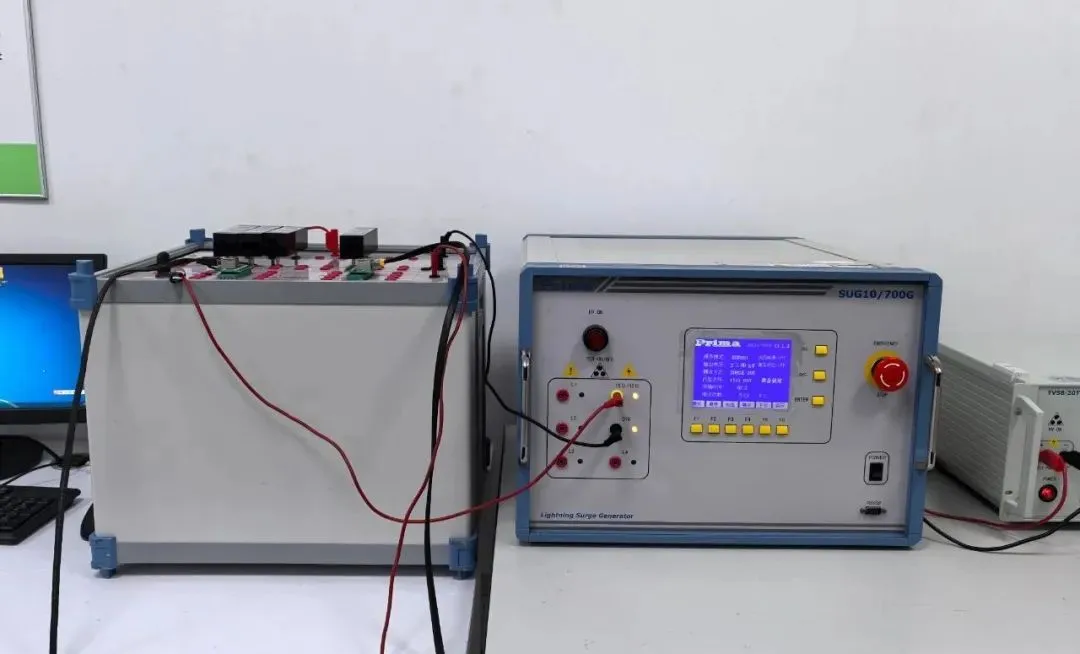
Introduction to FCC and Part 15 Standards
Overview of fcc
The FCC (Federal Communications Commission) was established in 1934 and primarily manages and regULates the use of the radio spectrum. Its responsibilities include overseeing electromagnetic interference (EMI) requirements for wireless electronic products, scientific equipment, household appliances, and more in the U.S. market, ensuring that these devices do not cause harmful interference to other equipment during operation.
FCC Part 15 outlines the technical requirements for all radio frequency devices. It is a mandatory standard for radio frequency devices entering the U.S. market, covering technical specifications, administrative requirements, and market placement conditions.
fcc part 15 Standard Applicable Products
1. Computers and Peripheral Devices (e.g., keyboards, monitors, MICe, etc.).
2. Household Appliances (e.g., refrigerators, hair dryers, microwaves, etc.).
3. Lighting and Electronic Devices (e.g., LED lights, stage lighting, etc.).
FCC Part 15 Subsections
1. Subpart A: A general rule that defines the limits on electromagnetic radiation to ensure devices do not interfere with other equipment.
2. Subpart B: Specifies radiation limits and testing requirements for computer equipment.
3. Subpart C: Sets interference limits for television receiving devices.
4. Subpart D: Outlines technical requirements for radio radiation detection equipment.
5. Subpart E: Governs low-power devices, such as wireless headphones and keyboards, with spectrum usage requirements.
fcc certification Types
According to CFR 47, electronic products entering the U.S. must undergo electromagnetic compatibility certification. Common certification types include:
1. Self-Verification (VOC): Manufacturers conduct their own tests and retain reports. Applicable to commercial computers, TV receivers, etc.
2. Declaration of Conformity (DOC): Testing must be conducted by an FCC-approved lab, applicable to home computers, broadcast receivers, etc.
3. ID Certification: Submission of samples and test data for review. If compliant, the product receives an fcc id number. Applicable to wireless devices, remote controls, etc.
Intentional and Unintentional Radiators
- Intentional Radiator: A device that intentionally generates and emits radio frequency energy, such as radio transmitters.
- Unintentional Radiator: A device that generates RF energy for internal use but does not emit it, such as computers.
The FCC Part 15 standard aims to ensure that electronic devices do not interfere with other wireless communications, maintaining electromagnetic compatibility and improving device quality and reliability.
Email:hello@jjrlab.com
Write your message here and send it to us
 What is the EN 61326-2-3 Standard?
What is the EN 61326-2-3 Standard?
 Why Do Smart Sockets Need IEC 60884 Certification?
Why Do Smart Sockets Need IEC 60884 Certification?
 Why Retest the Device if the 5G Module Already Has
Why Retest the Device if the 5G Module Already Has
 Overview of IEC 62087 Test Standard
Overview of IEC 62087 Test Standard
 CISPR 25 Test Standard Compliance Guide
CISPR 25 Test Standard Compliance Guide
 IEC/UL/CSA 62368-1 Electrical Distance Testing
IEC/UL/CSA 62368-1 Electrical Distance Testing
 Canada Wireless Device IC Certification RSS-210 Te
Canada Wireless Device IC Certification RSS-210 Te
 FCC Part 15.231 for Wireless Remote Controls and S
FCC Part 15.231 for Wireless Remote Controls and S
Leave us a message
24-hour online customer service at any time to respond, so that you worry!




